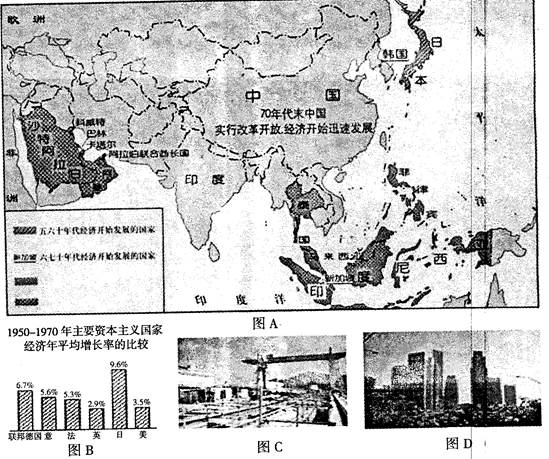问题
改错题
如图,阅读下列图片,结合所学知识回答问题:
图A:20世纪后半期亚洲经济的发展
图B:1950 -1970年主要资本主义国家经济年平均增长率比较
图C:韩国的现代化工业企业图
图D:环境优美的新加坡

(1)简要概括图A中20世纪后半期亚洲经济发展的特点。(1分)
(2)图B中日本经济迅速崛起的主要原因是什么?(2分)
(3)图C、D所示,新加坡、韩国经济腾飞的成功经验是什么?(2分)
答案
⑴特点:发展迅速但不平衡。(1分)
⑵美国的扶植;实行非军事化政策;引进利用最新的科学技术成就;重视科技教育等。(答出1点即可,2分)
⑶抓住机遇,引进外国资本和先进技术;适时调整经济发展战略,重视发展教育等。(答出1点即可,2分)
本题考查的是二战后亚洲经济的发展。图A中20世纪后半期亚洲经济发展的特点是发展迅速但不平衡。图B中日本经济迅速崛起的主要原因是美国的扶植;实行非军事化政策;引进利用最新的科学技术成就;重视科技教育等。图C、D所示,新加坡、韩国经济腾飞的成功经验是抓住机遇,引进外国资本和先进技术;适时调整经济发展战略,重视发展教育等。
